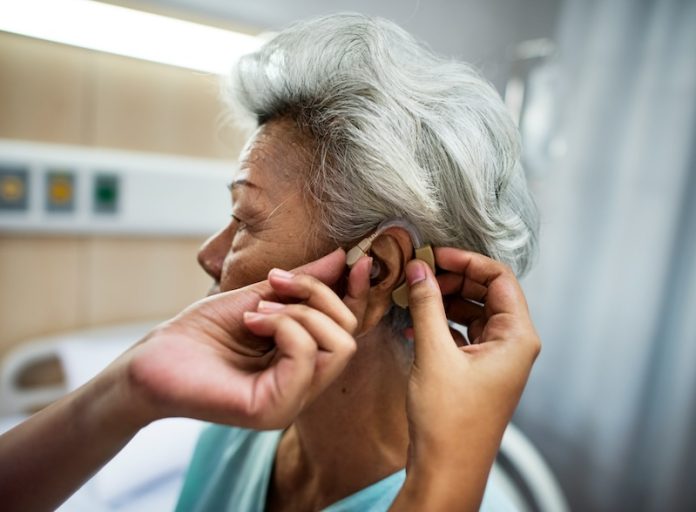
A recent study led by researchers at Oregon Health & Science University has uncovered a link between hearing loss and an increased risk of developing Parkinson’s disease (PD).
The research suggests that the risk of PD rises with the severity of hearing loss but can be reduced with timely use of hearing aids.
For some time, scientists have noted that sensory impairments, such as difficulties with vision, hearing, and smell, can sometimes precede the onset of neurodegenerative diseases.
Previous studies have already connected hearing loss with Alzheimer’s disease, which shares many characteristics with Parkinson’s, including similar genetic traits and brain changes.
These sensory declines are thought to reflect early damage in neural pathways, signaling an overall pattern of neurodegeneration.
The research, published in JAMA Neurology, focused on a large group of over 3 million U.S. veterans to explore the connection between hearing loss and Parkinson’s disease.
The study, titled “Hearing Loss, Incident Parkinson Disease, and Treatment With Hearing Aids,” analyzed records of veterans who had undergone hearing tests between 1999 and 2022.
These veterans were grouped based on the severity of their hearing loss: normal hearing, mild loss, moderate loss, moderate-to-severe loss, and severe loss.
At the start, 20.8% of the group had normal hearing, while the rest had varying levels of hearing loss. The average age of the participants was 67 years old, and 96% of them were male.
The study followed these veterans for up to 10 years after their initial hearing test to track new cases of Parkinson’s disease.
The findings revealed a clear pattern: the greater the hearing loss, the higher the risk of developing Parkinson’s disease. Veterans with mild hearing loss showed 6.1 more cases of Parkinson’s per 10,000 individuals compared to those with normal hearing.
For those with moderate hearing loss, the increase was 15.8 cases per 10,000, while veterans with moderate-to-severe hearing loss saw an increase of 16.2 cases per 10,000. Those with the most severe hearing loss experienced an increase of 12.1 cases per 10,000.
The study’s results also highlighted the potential benefits of hearing aids. Veterans who received hearing aids soon after their hearing loss was identified had 21.6 fewer cases of Parkinson’s per 10,000 individuals.
This finding points to the possibility that early intervention with hearing aids could help lower the risk of developing the disease.
While the study shows a correlation between hearing loss and Parkinson’s, the researchers emphasize the need for more research to understand the biological mechanisms that might be driving this connection.
The exact relationship between these two conditions is still not fully understood, but the findings suggest that hearing loss might be an early indicator of damage to brain pathways.
In light of this study, the researchers recommend routine hearing screenings, even for people who may not be experiencing noticeable hearing problems.
Early detection and intervention with hearing aids are both low-cost and low-risk measures that could potentially play a role in preventing neurodegenerative diseases later in life.
The study’s authors believe that hearing loss may be an important, and possibly the most modifiable, risk factor for midlife dementia. They also propose that it could have a similar impact on the risk of developing Parkinson’s disease.
This new study underscores the importance of paying attention to sensory health, especially hearing, as part of overall preventive care.
By taking simple steps like regular hearing screenings and early use of hearing aids, there may be an opportunity to reduce the risk of serious conditions like Parkinson’s disease and improve long-term brain health.
If you care about Parkinson’s disease, please read studies that Vitamin B may slow down cognitive decline, and Mediterranean diet could help lower risk of Parkinson’s.
For more information about brain health, please see recent studies that blueberry supplements may prevent cognitive decline, and results showing Plant-based diets could protect cognitive health from air pollution.
The research findings can be found in JAMA Neurology.
Copyright © 2024 Knowridge Science Report. All rights reserved.



